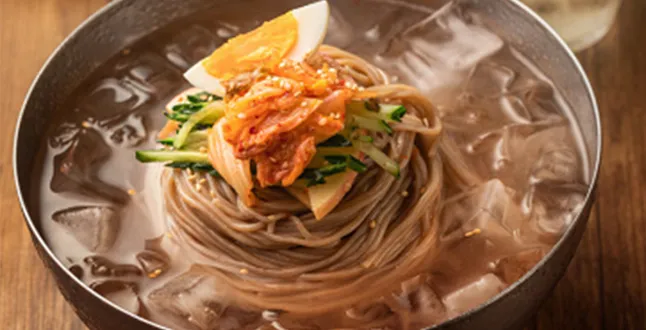are buckwheat soba noodles good for you
Are Buckwheat Soba Noodles Good for You?
Buckwheat soba noodles have gained popularity in recent years, especially among health-conscious individuals and those following a gluten-free diet. Originating from Japan, these noodles have been a staple in Asian cuisine for centuries. Made primarily from buckwheat flour, they are often praised for their nutritional benefits and unique flavor. But are they genuinely good for you? Let's explore the health benefits, nutrient profile, and potential drawbacks of buckwheat soba noodles.
Nutritional Profile of Buckwheat Soba Noodles
Buckwheat is not actually a grain; it is a seed from a plant related to rhubarb. Unlike traditional wheat noodles, soba noodles made from 100% buckwheat are gluten-free, making them an excellent choice for those with celiac disease or gluten sensitivity. Typically, soba noodles contain the following nutrients per serving (around 100 grams)
- Calories Approximately 99 - Carbohydrates 21 grams - Protein 5 grams - Fat 1 gram - Fiber 2 grams
In addition to these macronutrients, buckwheat soba noodles are rich in essential vitamins and minerals, including B vitamins (such as niacin and riboflavin), iron, magnesium, and manganese. The presence of these nutrients contributes to overall health and well-being.
Health Benefits of Buckwheat Soba Noodles
1. High in Antioxidants Buckwheat is loaded with antioxidants, particularly rutin, which is known for its anti-inflammatory properties. These antioxidants help combat oxidative stress in the body, which is linked to chronic diseases and aging.
2. Promotes Heart Health The high levels of fiber in buckwheat can help lower cholesterol levels, thereby reducing the risk of heart disease. Moreover, the magnesium content in buckwheat aids in maintaining healthy blood pressure.
are buckwheat soba noodles good for you

3. Supports Digestive Health The fiber found in buckwheat soba noodles helps regulate bowel movements and promote a healthy gut. Incorporating fiber-rich foods into your diet can prevent constipation and improve overall digestive health.
4. Stabilizes Blood Sugar Levels Buckwheat has a low glycemic index compared to traditional pasta, which means it can help stabilize blood sugar levels. This makes it a wise choice for individuals with diabetes or those looking to manage their blood sugar.
5. Weight Management Due to their high protein and fiber content, buckwheat soba noodles can promote satiety and reduce overall calorie intake. This makes them a beneficial addition to a weight management plan.
Potential Drawbacks
While buckwheat soba noodles have many benefits, there are a few considerations to keep in mind. Firstly, not all soba noodles are made from 100% buckwheat; many contain wheat flour, which defeats the purpose for those seeking gluten-free options. Always check the packaging to ensure the noodles are indeed gluten-free.
Moreover, buckwheat soba noodles should be consumed in moderation. Despite their benefits, they are still a carbohydrate source and can contribute to weight gain if consumed in excessive quantities without a balanced diet.
Conclusion
In summary, buckwheat soba noodles can be a healthy and nutritious addition to your diet, especially for those seeking gluten-free alternatives. Their rich nutritional profile, combined with numerous health benefits, makes them a desirable choice. However, as with any food, moderation is key, and it is essential to be mindful of the quality of the soba noodles you choose. Whether you enjoy them in a warm broth, cold salad, or stir-fry, buckwheat soba noodles can provide flavor, variety, and health benefits in your meals. So, the next time you're looking for a wholesome noodle option, consider reaching for buckwheat soba noodles. Your body will thank you!
-
Unleash Your Inner Chef with Delectable Italian Pasta CreationsNewsAug.01,2025
-
Savor Health and Flavor: Irresistible Soba Noodles for Sale Await!NewsAug.01,2025
-
Nourish Your Body with Premium Organic Ramen - A Culinary Delight AwaitsNewsAug.01,2025
-
Elevate Your Dishes with Our Exquisite Kinds of Egg NoodlesNewsAug.01,2025
-
Dive into Flavorful Convenience with Our Ramen OfferingsNewsAug.01,2025
-
Discover Exquisite Types of Naengmyeon and Chilled Soba NoodlesNewsAug.01,2025
-
Is Whole Wheat Pasta Healthy?NewsMay.30,2025
Browse qua the following product new the we

















































































































